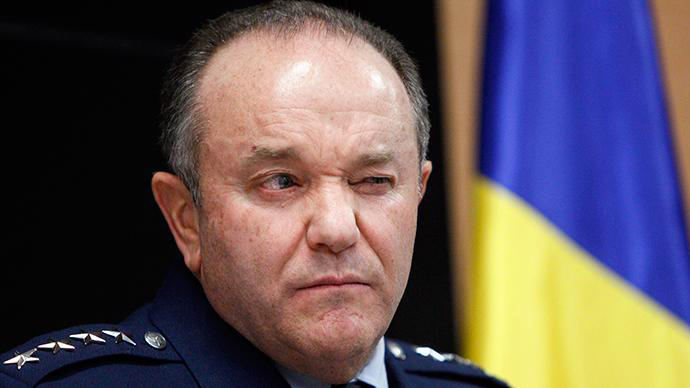What Greece's Election Means For The Rest Of The World
Greece will vote in parliamentary elections on Sunday, nearly one month after Prime Minister Antonis Samaras was forced to
call a snap vote after parliament failed to agree on a new president.
Polls indicate that
radical left-wing party Syriza
is set to take the most votes. Whether Syriza gains an outright
majority or forms a ruling coalition, the party's firebrand leader
Alexis Tsipras looks set to become prime minister of the troubled
European nation.
Samaras' popularity has declined significantly
since coming into office in 2012, amid a strict austerity program
imposed by Greece's "troika" creditors, made up of eurozone countries,
the European Central Bank and the International Monetary Fund.
Greece received
bailouts from the "troika" in 2010 and 2012 totaling 240 billion euros (or $283 billion), and continued funding is set for review again in February.
Despite recent economic gains,
unemployment remains as high as 26 percent and the economy is still struggling, the Economist reports.
Tsipras has campaigned furiously
against the austerity measures and vowed to renegotiate the country's huge debt burden. But countries who funded the bailouts, most notably Germany, have
refused to negotiate debt relief.
The potential standoff raises the prospect that Greece will default on
its debt and leave the euro currency, causing economic and political
reverberations around the world.
Here are some of the potential implications of Greece's election for the rest of the globe:
HISTORIC MOMENT FOR THE EURO
Analysts say that despite their threatening rhetoric,
both Greece and Germany have more interest in striking a deal than a Greek default.
Tsipras moderated his talk about facing down Europe
as the election got closer, the Guardian explained. The newspaper noted
that Tsipras, if victorious, has a delicate balancing act ahead between
the demands of Greece's creditors and his anti-euro political base.
Both
Tsipras and German Chancellor Angela Merkel insist that Greece should
stay in the eurozone. If Greece does leave, it would be the
first departure in the currency's history.
Such
a move would not necessarily prompt other European countries to follow.
"Investors seem to be betting that the people of Italy, Spain and
France will peek at the chaos in Athens, shudder -- and
stick to the austerity that Germany’s Angela Merkel has prescribed for them," The Economist wrote.
Yet
it would be a huge step into the unknown for the young currency union,
particularly among weaker eurozone economies with political troubles of
their own, such as Italy and Spain.
DESTABILIZED GLOBAL ECONOMY
Since the 2008 financial crisis, concerns that Greece will default on its debt -- the
highest in Europe relative to gross domestic product -- have
repeatedly flared.
Economists warn that a Greek default would undermine confidence that
other debt-ridden countries will meet their obligations, sending
financial markets into further crisis.
However, as Bloomberg noted, some of the most dire predictions
were averted by European Central Bank guarantees, and Europe is less panic-stricken today about Greece's potential to destabilize the global economy.
But unpredictability is not good for financial stability. The Wall Street Journal reports that
Greece's economy is already suffering from political uncertainty surrounding the elections.
EMBOLDENED RADICAL POPULIST PARTIES
Populist parties of both the left and right are surging across Europe, and could be boosted by a Syriza win.
"With
similar anti-establishment parties gaining ground rapidly in a number
of other countries scheduled to hold elections in 2015, the spill-over
effects from a further period of Greek turmoil could be significant,"
The Economist Intelligence Unit warned in
research for the BBC.
"Anti-establishment sentiment has surged across the eurozone (and the
larger EU) and the risk of political disruption and potential crises is
high."
Anti-establishment parties have even rallied together
despite radically different political leanings. The leader of France's
far-right National Front party, Marine Le Pen,
expressed support for the far-left Syriza despite their conflicting political backgrounds and immigration policies.
RADICAL FOREIGN POLICY?
Syriza also send warning bells across Europe by supporting Greece's pullout from NATO and criticizing sanctions on Russia.
However, the party has also
softened its stance on foreign policy issues
in the run-up to the election, refocusing on the momentous domestic
challenges in the country, Bloomberg noted: "Syriza is sacrificing its
more revolutionary ambitions to the overriding goal of getting better
terms for Greece’s economic aid package."

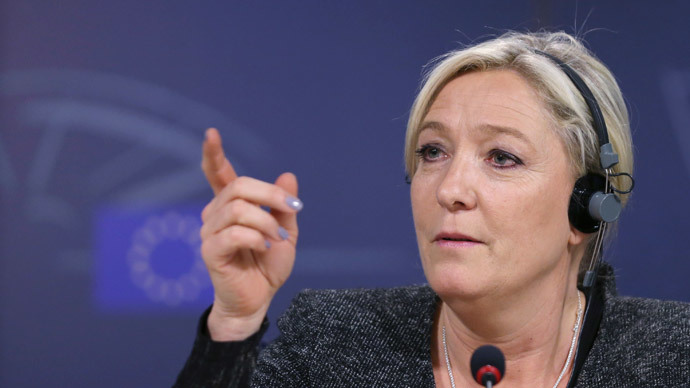





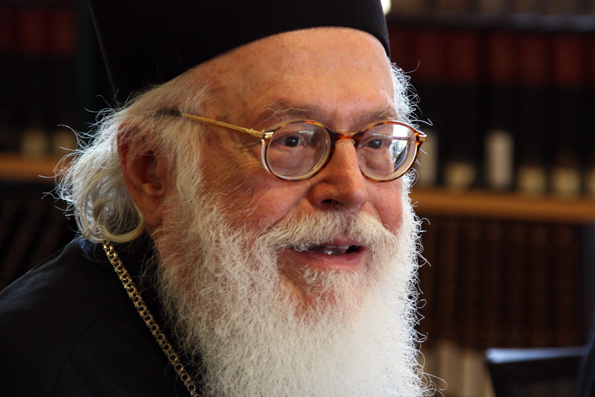
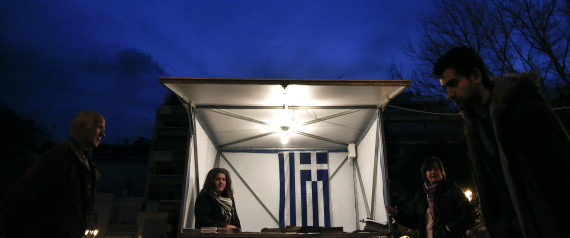
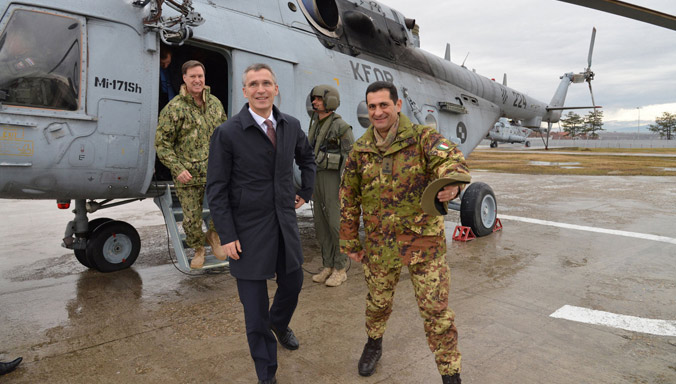
 Serbian
officials have finally had enough of the menace that is Greater Albania
– a political movement that aims to unify ethnic Albanians within
Albania proper, Kosovo, Serbia, Greece, Macedonia and Montenegro under
one state. The idea of unification has its origins in the events of the
Treaty of London in 1913, when half of predominantly Albanian
territories and almost half of the ethnic Albanian population were left
outside the new country's borders.
Serbian
officials have finally had enough of the menace that is Greater Albania
– a political movement that aims to unify ethnic Albanians within
Albania proper, Kosovo, Serbia, Greece, Macedonia and Montenegro under
one state. The idea of unification has its origins in the events of the
Treaty of London in 1913, when half of predominantly Albanian
territories and almost half of the ethnic Albanian population were left
outside the new country's borders. characteristic of the Serbian policy in the decades behind us, but will
offer common interests." Perhaps Dačić’s memory needs a little
refresher, given that his nation’s attempts at “Greater Serbia”
characterised the later years of Yugoslavia – not love. That legacy
produced several bloody civil wars, ethnic cleansing campaigns, and
international interventions in Bosnia, Croatia and Kosovo. Indeed, the
campaign for Greater Serbia has already occurred and has left behind a
tragic warning in blood, and this gives the West and all regional actors
plenty of reason to enact a “double standard.” Even recently, in a
characteristic of the Serbian policy in the decades behind us, but will
offer common interests." Perhaps Dačić’s memory needs a little
refresher, given that his nation’s attempts at “Greater Serbia”
characterised the later years of Yugoslavia – not love. That legacy
produced several bloody civil wars, ethnic cleansing campaigns, and
international interventions in Bosnia, Croatia and Kosovo. Indeed, the
campaign for Greater Serbia has already occurred and has left behind a
tragic warning in blood, and this gives the West and all regional actors
plenty of reason to enact a “double standard.” Even recently, in a 


